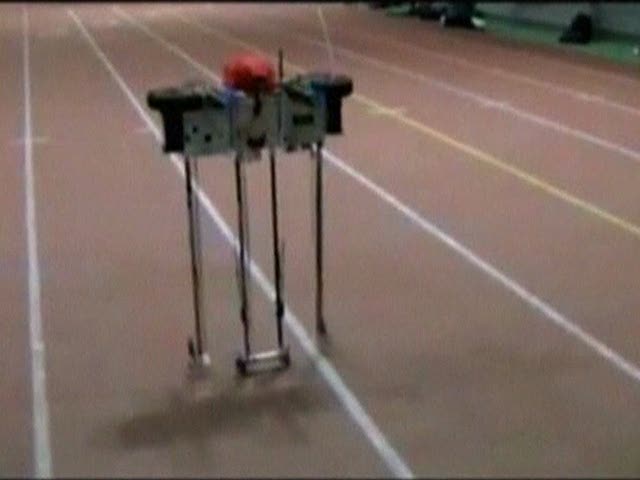Web university Jones International is accredited to grant college degrees.
Published:
11 March 1999 y., Thursday
Jones International University, which sells online courses for profit, has become the first Internet-only school accredited to grant college degrees. It operates out of a small suite of offices with nine full-time employees in Englewood, Colo, and is unrelated to Internet courses offered by Dow Jones & Co., the publisher of The Wall Street Journal and the Interactive Journal. Jones International received its bona fides last week from the North Central Association of Colleges and Schools, the main accreditor for higher education in its region. Like the hugely successful University of Phoenix, a unit of Apollo Group Inc. also accredited by North Central, Jones International_s business model features courses taught by part-time professors free-lancing from other schools to earn a little extra money. It hires professors from Columbia University, Stanford University and the University of Texas to design the courses. But instruction is delivered by adjunct faculty who lead e-mail discussions and grade papers and exams. This provides substantial savings from the costs associated with full-time university professors. Jones International offers bachelor_s and master_s degrees in business communications. Among other Internet education ventures, OnlineLearning.net has the exclusive rights to market noncredit versions of courses given at University of California at Los Angeles. Mr. Jones is the founder of Jones Intercable Inc., a large cable-TV company, and Mind Extension University, a cable network that provides degrees from existing colleges. Mr. Jones, who has agreed to sell his controlling stake in Jones Intercable to Comcast Inc. for $200 million, sees a huge market for "real-estate averse" schools such as his. Jones International started offering Internet courses in business communications four years ago. Since then, 950 people from 34 countries have enrolled in eight-week courses at an average cost of $700 for a three-credit graduate course. Jones International can_t match the state-subsidized prices of public schools. But it is far cheaper than private universities.
Šaltinis:
Internet
Copying, publishing, announcing any information from the News.lt portal without written permission of News.lt editorial office is prohibited.
The most popular articles

The European Commission announced today the award of three of the six contracts for the procurement of Galileo’s initial operational capability.
more »
 In a world first, doctors in Austria have amputated the arms of two young men and replaced them with bionic prosthetics. The decision to amputate was made after the men had irreversibly lost all movement in their hands.
more »
In a world first, doctors in Austria have amputated the arms of two young men and replaced them with bionic prosthetics. The decision to amputate was made after the men had irreversibly lost all movement in their hands.
more »
 An ultra-realistic robot, known as a geminoid, is helping psychologists test how we relate to machines...
more »
An ultra-realistic robot, known as a geminoid, is helping psychologists test how we relate to machines...
more »
 Scientists from the University of Sheffield have developed pigment-free, intensely coloured polymer materials, which could provide new, anti-counterfeit devices on passports or banknotes due to their difficulty to copy.
more »
Scientists from the University of Sheffield have developed pigment-free, intensely coloured polymer materials, which could provide new, anti-counterfeit devices on passports or banknotes due to their difficulty to copy.
more »
 iRobot Corp announced plans to create Android applications for the iRobot Ava mobile robotics platform.
more »
iRobot Corp announced plans to create Android applications for the iRobot Ava mobile robotics platform.
more »
 When robots talk to each other, they're not generally using language as we think of it, with words to communicate both concrete and abstract concepts.
more »
When robots talk to each other, they're not generally using language as we think of it, with words to communicate both concrete and abstract concepts.
more »
 Using laser and nanotechnology, scientists in Chicago have been able go back in time and uncover how masterpieces from artists like Homer and Van Gogh might have looked like when they were first painted.
more »
Using laser and nanotechnology, scientists in Chicago have been able go back in time and uncover how masterpieces from artists like Homer and Van Gogh might have looked like when they were first painted.
more »
 Most mechanical resonators damp (slow down) in a well-understood linear manner, but ground-breaking work by Prof. A. Bachtold and his research group at the Catalan Institute of Nanotechnology has shown that resonators formed from nanoscale graphene and carbon nanotubes exhibit nonlinear damping, opening up exciting possibilities for super-sensitive detectors of force or mass.
more »
Most mechanical resonators damp (slow down) in a well-understood linear manner, but ground-breaking work by Prof. A. Bachtold and his research group at the Catalan Institute of Nanotechnology has shown that resonators formed from nanoscale graphene and carbon nanotubes exhibit nonlinear damping, opening up exciting possibilities for super-sensitive detectors of force or mass.
more »
 Automated driving systems, such as adaptive cruise control, may be the latest "must have" gizmos but the auto industry is already looking to their successor - cooperative driving - where cars communicate with each other as they go.
more »
Automated driving systems, such as adaptive cruise control, may be the latest "must have" gizmos but the auto industry is already looking to their successor - cooperative driving - where cars communicate with each other as they go.
more »
 For the past few years, researchers have been using quantum dots to increase the light absorption and overall efficiency of solar cells.
more »
For the past few years, researchers have been using quantum dots to increase the light absorption and overall efficiency of solar cells.
more »
 'Ranger' the robot has set a world record for its developers at Cornell University, by walking 40.5 miles non-stop on one charge.
more »
'Ranger' the robot has set a world record for its developers at Cornell University, by walking 40.5 miles non-stop on one charge.
more »